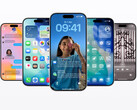Yesterday, Google announced a surprising technical feature: enabling seamless file transfer between Android and iPhone devices using Quick Share and AirDrop. While currently exclusive to the latest Google Pixel 10 series, this development opens the door for wide expansion across all Android brands. The critical detail? Google achieved this interoperability without Apple's collaboration.
This unilateral move has understandably created friction. Though Apple has not commented publicly, insights from trusted sources like Bloomberg’s Mark Gurman suggest that Cupertino is far from pleased. Gurman reported that Apple is looking "to kill this [AirDrop-Quick Share link] ASAP."
Google linked Android's Quick Share to iPhone's AirDrop, and Apple can’t easily stop it
However, reacting rashly risks a major public relations backlash. Gurman says that Apple is "backed into a corner here" because they want to avoid "another RCS-level PR and regulatory war" that would tarnish their public image.
For years, Google publicly pressured Apple to adopt the modern RCS standard for texting on iMessage through the “#GetTheMessage” campaign that left the Cupertino giant looking resistant to cross-platform user benefits. The company eventually adopted RCS, but only after sustained public and media scrutiny.
The PR and EU factor
Beyond public opinion, Apple must carefully calculate its response due to increasing regulatory pressure, particularly from the European Union. The European Commission has been especially active in recent years, forcing Apple into decisions it would not have made voluntarily. Precedents include the adoption of the USB-C charging standard and the mandatory facilitation of third-party app stores on iPhones and iPads.
Non-compliance with the EU’s digital regulations can result in severe financial sanctions. By making the AirDrop link unilateral, Google has created a user-friendly feature that regulators might deem necessary for fair interoperability.
For now, Google appears to have succeeded with this coldly calculated move. The tech industry now waits for Apple's public reaction, which will likely be one of the most cautious and carefully considered strategic moves the company makes this year.
























